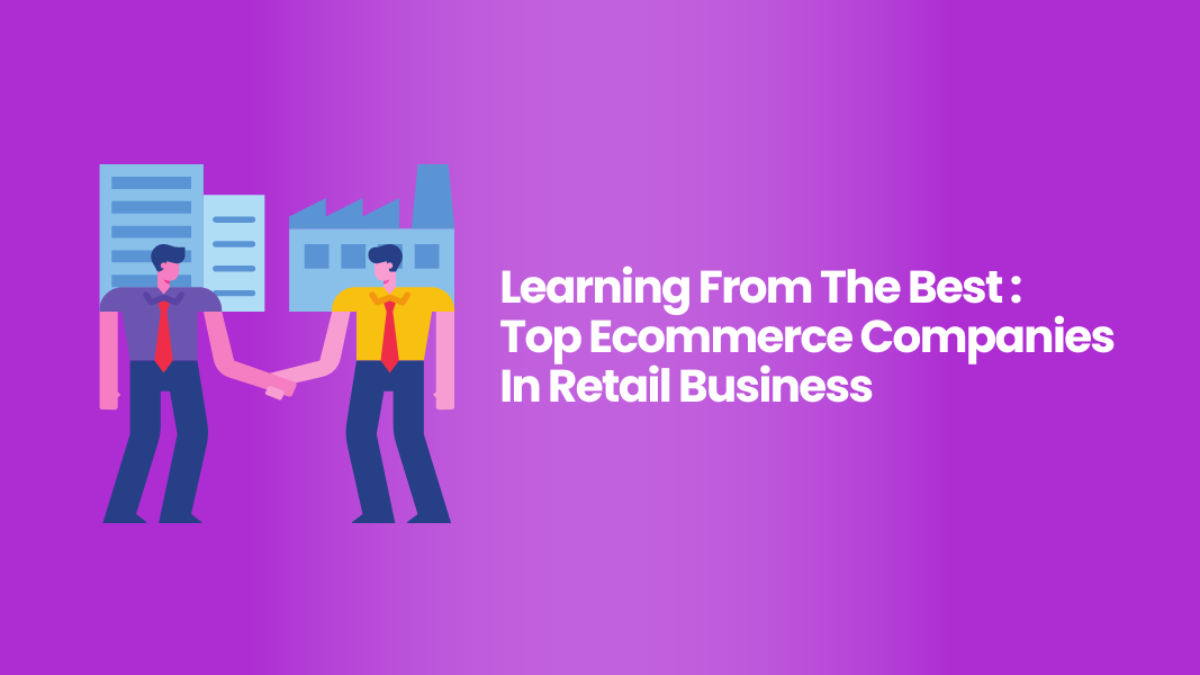In today’s digital-first world, the phrase “top ecommerce companies in retail business” points to a select group of industry leaders who have not only transformed the way we shop but also set new standards for success in online retail. As traditional brick-and-mortar stores face declining foot traffic, the shift to online platforms is no longer a mere trend but a vital strategy for survival and growth. This article delves into the key players in the ecommerce space, offering insights into what makes these companies successful and how their strategies can guide other retail businesses in navigating the digital landscape.
The Evolution of Ecommerce Titans
Over the past two decades, ecommerce has experienced explosive growth, driven by innovation, customer-centric approaches, and advanced technology. Let’s explore the top ecommerce companies in the retail business and uncover what sets them apart:
1. Amazon: The Benchmark of Ecommerce Success
Amazon, founded by Jeff Bezos in 1994, has become synonymous with online shopping. Initially starting as an online bookstore, it has since grown into a global marketplace offering a vast array of products from electronics to groceries. Its remarkable success is largely due to its customer-centric focus and technological integration. Amazon’s commitment to customer satisfaction is reflected in its wide product range and innovative services such as Amazon Prime, which offers expedited shipping, exclusive deals, and access to digital content. Additionally, the company’s use of artificial intelligence and machine learning provides personalised recommendations, while its Fulfilment by Amazon (FBA) program enables third-party sellers to utilise Amazon’s extensive logistics network, further solidifying its dominant position in ecommerce.
2. Alibaba: The Asian E Commerce Powerhouse
Alibaba, founded by Jack Ma in 1999, has emerged as a major force in the Asian ecommerce market. With platforms like Taobao, Tmall, and AliExpress, Alibaba serves a diverse range of market segments. Its success is largely attributed to its extensive logistics network, which supports its broad ecommerce operations and enables retailers to access the vast Chinese market and beyond. Additionally, Alibaba’s adept use of big data to analyse consumer behaviour has been crucial to its achievements. This is exemplified by the annual Singles’ Day sale, which has grown into the world’s largest shopping event, showcasing Alibaba’s significant influence in the ecommerce sector.
3. eBay: The Pioneer of Online Auctions
Since its founding in 1995, eBay has been a trailblazer in online auctions, evolving to support both auction-style and fixed-price listings. Its community-driven approach fosters trust and transparency among buyers and sellers, creating a reliable marketplace. eBay’s commitment to innovation is evident in its integration of augmented reality for virtual try-ons, which enhances the online shopping experience and demonstrates its dedication to staying at the forefront of ecommerce technology.
4. Walmart: Bridging Physical and Digital Retail
Walmart, the world’s largest retailer, has effectively integrated its physical stores with its online platform to offer a seamless shopping experience. Its omnichannel strategy emphasises convenience, competitive pricing, and a vast product assortment. The strategic acquisition of Jet.com in 2016 significantly expanded Walmart’s e-commerce capabilities and customer reach, allowing it to leverage its robust logistics infrastructure to benefit retailers and enhance its online presence.
5. Grozeo: Empowering Retailers with Custom Solutions
Grozeo has quickly risen as a popular platform for small and medium-sized businesses that want to build an online presence. Unlike other platforms, Grozeo emphasizes empowerment by offering a highly customizable and user-friendly interface for creating and managing online stores. Grozeo’s key advantage lies in its affordability, allowing businesses to start for free and upgrade only if they choose to. With a complete set of tools, from marketing to payments and customer engagement, Grozeo allows independent retailers to maintain control over their operations and achieve sustainable growth.
Why Retail Businesses Should Embrace Ecommerce
The success of these top ecommerce companies underscores the necessity for retail businesses to establish an online presence. Here’s why moving online is crucial:
- Broader Reach: Ecommerce allows businesses to access global markets, expanding their customer base and increasing sales potential.
- Cost Efficiency: Online stores typically have lower overhead costs compared to physical locations, reducing expenses related to rent, utilities, and staffing.
- Valuable Insights: Ecommerce platforms provide data on customer behaviour and preferences, enabling personalised marketing strategies and optimised product offerings.
- Convenience: Online shopping provides 24/7 access, catering to consumer demand for convenience and improving overall customer satisfaction.
- Flexibility and Growth: Ecommerce businesses can quickly adapt to market changes and scale operations with minimal investment, ensuring sustainable growth.
- Technological Advancement: Leveraging technologies like AI and machine learning can enhance offerings and personalise customer experiences.
Conclusion
The achievements of the top ecommerce companies in the retail business highlight the transformative power of online retail. For traditional retailers, embracing e-commerce is not just a strategic move but a necessity in the digital age. By adopting the best practices of leaders like Amazon, Alibaba, eBay, Walmart, and Grozeo, retail businesses can expand their reach, reduce costs, and deliver superior shopping experiences. As the digital marketplace continues to evolve, those who innovate and adapt will thrive, establishing themselves as frontrunners in the future of retail.

Leave a Comment